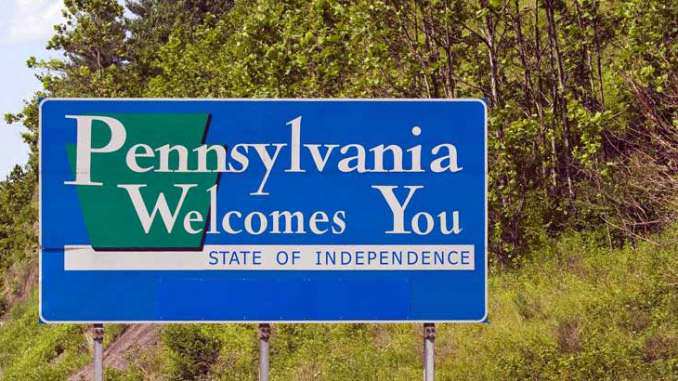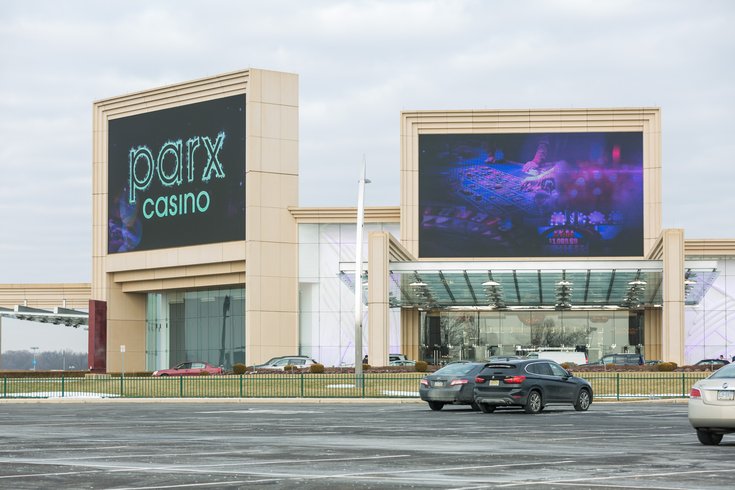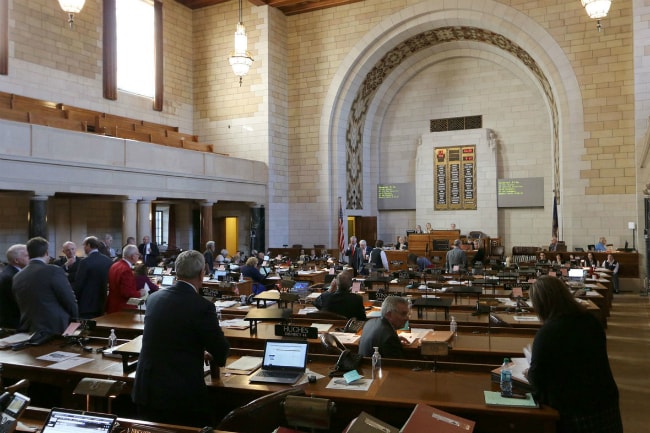- Pennsylvania School Tax Relief
- Ny State Property Tax Relief
- Pa Casino Property Tax Relief
- Pa Tax Relief
Do you want relief from Property Tax? Of course, we all do! While marijuana sales are being touted as the “perfect answer” for tax relief, I want to be sure that Pennsylvania’s citizens are informed, so that good decisions can potentially lead to great results for homeowners.
Tax Relief for All Pennsylvanians. Pennsylvania residents' 2011-2012 school tax bills will be reduced by $612 million statewide, thanks to slot gamblers at state casinos.The tax break is automatic and residents don't have to apply. The tax break will average $150 per household, although it ranges from $52 at the low end to more than $400.
- Annual Certification of Pennsylvania Property Tax Relief The 2006 Taxpayer Relief Act established the Property Tax Relief Fund as a way to use gaming revenue to reduce property taxes for homeowners. The law requires the budget secretary to certify the actual balance in the fund by April 15 of each year and to project gaming revenue coming into.
- Property Tax Relief. This information has recently moved. Please visit the new Property Tax Relief page. Provide universal access to high-quality early childhood education. Schools that Teach. Ensure graduates of Pennsylvania’s high schools are career ready. Schools that Teach. Improve access, affordability, and completion in postsecondary.
School funding is an ongoing challenge for Pennsylvania. As a former school board director, for over 17 years, I am aware of the challenges that all schools in York County, as well as in the Commonwealth, are facing. For at least three decades, the legislature has done virtually nothing to address the escalating tax bills. For public education, in many cases, it is not a matter of over spending, but rather, a case of under taxation at the state level that has created most of these higher tax bills. As a resident of York County, and a Democratic candidate for the 28th Senate district, I would like to discuss the issues I have identified and propose a solution that I believe will benefit homeowners.
Taxes pay for the essential services of the Commonwealth. They are collected and then redistributed to towns, boroughs, and schools. Without taxes, we will all experience poor roads, continued deterioration of bridges and overpasses, fewer safety nets for families, as well as less security as police, fire, 911 services and other life/safety services will be forced to do more with less. While all these concerns are worthy of our immediate attention, my focus is on the school portion of the homeowners’ taxes.
More: What's worse than paying Pa.'s property taxes? For some: not having to pay them.
While heat, electricity, technology and texts are expensive, payroll is the largest portion of the budget for any district, just as it is for most businesses. Within payroll, there are the pension contributions, as well as the other required deductions such as FICA. The state Public School Employees Retirement System (PSERS), funded by contributions from both the state and from the individual school districts, reflects how much the person is paid. It is important to note that the pension payment, like the electricity, is part of the homeowner’s tax bill.


In 2001, after 9/11, the economic downturn hit the investments of the state, resulting in a huge loss of investments for most people. As PSERS is a defined benefit retirement, meaning that it is a guaranteed retirement amount, these losses had to be made up and the taxpayers are getting the bill. In 2002/03, school districts were directed to contribute 0.18% by PSERS Retirement System. The schools were given a low contribution rate because the state was unable to meet its full financial obligation. It was at that time, as a fiscally conservative Board member, I recommended that Eastern York School District establish a dedicated fund for future pension increases that we knew would come. That recommendation was accepted.
More: Pa. expands medical marijuana program to include dry leaf, flower
Election 2018: What you need to know about the governor race
Today, in 2017/18, school districts were asked to pay 31.74% towards PSERS. The teachers are not to blame for the pension increases, the district is not to blame for the pension increase. It is the ongoing inability of the current legislature to be realistic about the needs of our Commonwealth, to meet the contractual obligations, that is placing a tremendous burden on homeowners. The desire to “cut taxes” is not working and homeowners are bearing the brunt.
This brings up the second factor, the drive by the legislature to “cut taxes”. In the case of education, this simply means that the state contribution to education is reduced, leaving the burden for homeowners to pick up. The state contribution is now approximately 32% for most districts in York County. That means that homeowners pay 68% of the costs for education of the children. Preparing our students for the workplace, or higher education, or the military means investing in technology, ensuring professional development continues for the educators and meeting the physical, social and mental needs of the students. Schools do not have a spending problem, they have an income problem.
Pennsylvania School Tax Relief
There have been some proposed efforts to provide relief for homeowners. In 2005, a “Slots of Tots” gaming bill was supposed to provide relief, but legislative wrangling moved homeowners down to fourth in line for any benefits that might result from legalization. Interestingly, even as this was proposed to be a source of income for education, it is a fact that Pennsylvania’s legislature has strangled this source of revenue. Currently, slot machines are taxed at a rate of 54% (Pennbets.com). As a result, casino operators are less motivated to promote this form of gambling over table games, which are taxed at a different rate. As a result, homeowners realized very little relief. Today, according to my research, Pennsylvania legislators have been able to expand gambling to the point that the Commonwealth has become the “second largest land-based casino industry, trailing only Nevada.” (Pennbets.com) Where is all this revenue going and why shouldn’t homeowners realize any relief?
Today, Pennsylvania is exploring decriminalizing marijuana, and using the taxing revenues to pay for education, and there are merits to the argument. As a candidate for the 28th Senate district, and a Democrat, I am very interested in creating new revenue streams, while relieving the burden of school taxes on the residents of our Commonwealth. However, it needs to be done correctly to avoid some of the previous missteps by the legislature.
More: York's marijuana decriminalization law at a glance
Ny State Property Tax Relief
For background, there are currently nine states that have legalized recreational marijuana (and many more for medicinal usage). Recently, both Senator Chuck Schumer (D NY) and Senator Corey Gardner, (R CO) are leading the charge to influence the President to get the Justice Department to “back off” prosecuting marijuana, restoring the Obama era legal guidance. The federal law still classifies marijuana as a schedule 1 drug and this creates several conflicts and concerns. This is an important step because, at the very least, any employee who uses recreational weed, while working for a company that has federal contracts, could potentially lose their job! This is a cautionary point to be made, even though the potential relief for homeowner, appears tantalizingly close.
Colorado and California are two states that have recreational marijuana. According to U.S.News.com, in Colorado, about 51 percent of the accumulated tax revenue has gone to K-12 education, with $117.9 million of it used to fund school construction projects. Another quarter of the revenue is split between regulation, substance abuse prevention, and treatment programs.
Colorado imposes a sales tax of 2.9 percent on medical weed. For recreational adult use, it applies a 15 percent excise tax on wholesale transfers, as well as a 15 percent special sales tax on retail sales. Both uses are subject to license and registration fees as well, the study noted. These tax rates seem more reasonable, designed to encourage the business development and have resulted in a positive impact on education in Colorado.
Taxation is one of the key options for generating educational revenue, to reduce or eliminate property tax in Pennsylvania. I find it very troubling that, in Pennsylvania, the industry identified to help education, the gambling industry, has been ferociously taxed, while other industries, such as the gas/oil industry, is not. Perhaps that taxation disparity has something to do with lobbyist and contributions to politicians, but that is another discussion, as well.
Pa Casino Property Tax Relief
If elected to be your next Senator, I will fight for homeowner’s relief. The legalization of recreational marijuana, with appropriate safeguards, will be primarily to create a new revenue stream that will fund education and reduce/eliminate property taxes. I believe there needs to be a mix of revenue sources, as single source reliance is never a good idea. I will keep homeowners at the forefront of the legislation, providing real relief, not just shifting the bill from your real estate bill to your grocery bill. I have proven that I can do what needs to be done, even in a Republican controlled area. I think proactively, I recognize that any action must ensure the needs of both the students AND the homeowners are met, and that I can work collaboratively with the other side of the aisle. It is time to remove the roadblocks to progress in Harrisburg for our homeowners, and I am proposing potential solutions to give homeowners a tax break that will actually help them. If we want to attract high paying, good jobs to our state, then we must have well prepared students, that are in place, healthy, and technologically prepared to be the workforce that will meet so many needs.
Judith Higgins is a candidate for state Senate 28th District in the Democratic primary. She lives in Lower Windsor Township.
PITTSBURGH, Pennsylvania -- As reported by the Pittsburgh Tribune-Review: 'Property taxes for residents of Southwestern Pennsylvania will fall by as much as $407 next year, offset by taxes on
casino profits that will go to school districts, officials said Monday.
'They should see that change reflected in the bill, or they won't pay as much (from escrow accounts),' said Leah Harris, a spokeswoman for the Pennsylvania Department of Education.
'The law providing school districts with a means to lower property taxes by using money from slot machine gambling took effect in 2006. Officials estimated gambling would generate $1 billion each year for local property tax relief. The state places a 55 percent tax on casino profits, and from that amount puts 34 percent toward property tax relief.
Pa Tax Relief

'Among home and farm owners in Allegheny, Armstrong, Beaver, Butler, Fayette, Greene, Washington and Westmoreland counties, Mars Area School District will get the least tax relief -- $64 per household, on average -- and Washington the most, $407. All figures are estimates...'